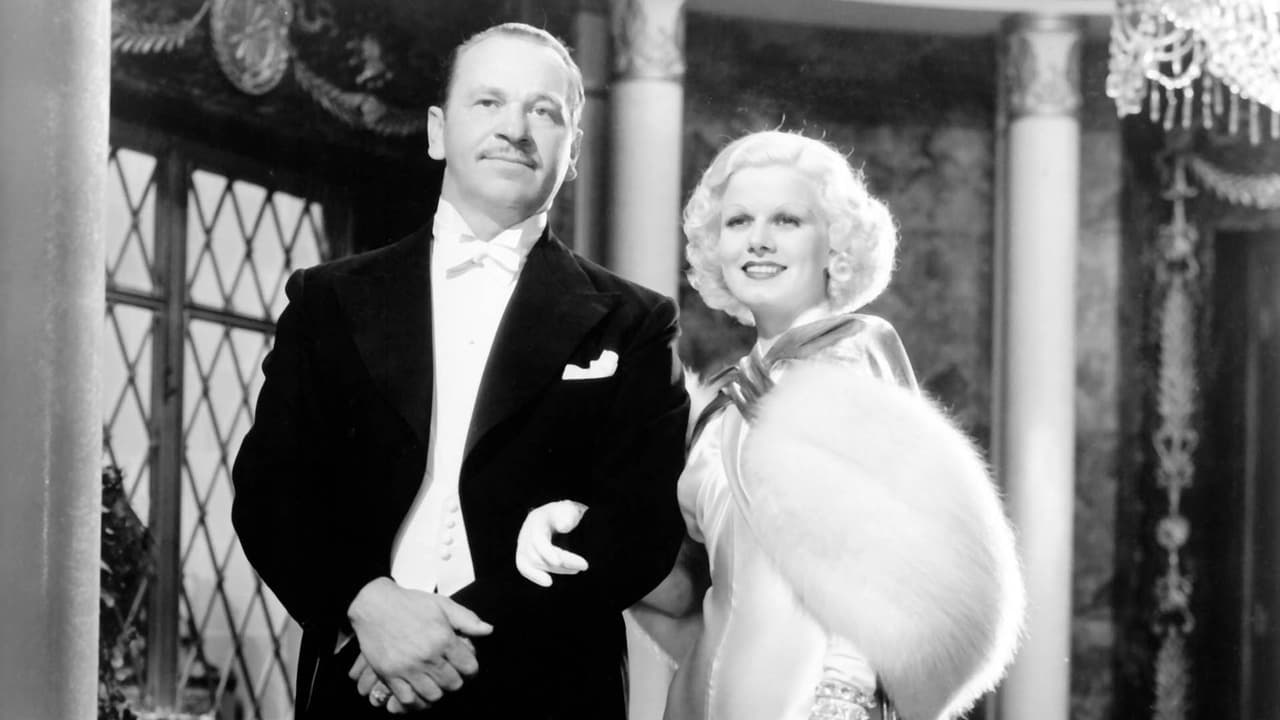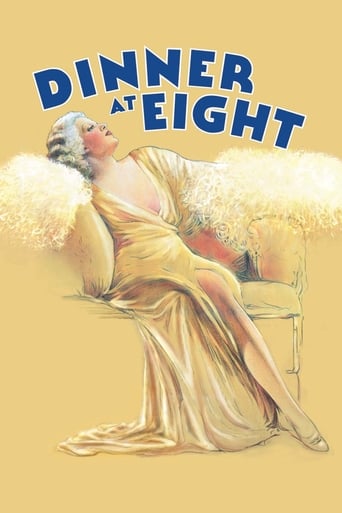



What a freaking movie. So many twists and turns. Absolutely intense from start to finish.
View MoreIt's the kind of movie you'll want to see a second time with someone who hasn't seen it yet, to remember what it was like to watch it for the first time.
View MoreThe plot isn't so bad, but the pace of storytelling is too slow which makes people bored. Certain moments are so obvious and unnecessary for the main plot. I would've fast-forwarded those moments if it was an online streaming. The ending looks like implying a sequel, not sure if this movie will get one
View MoreI enjoyed watching this film and would recommend other to give it a try , (as I am) but this movie, although enjoyable to watch due to the better than average acting fails to add anything new to its storyline that is all too familiar to these types of movies.
View MoreAn early film from George Cukor from the 30's. More a filmed stage play than a piece of celluloid. The character appearances are more like stage entries than camera set-ups but what can you do when the early days of cinema were the beginnings of a learning curve of what could be done rather than what could not. Anyway, a dinner date is coming up & the various ho-polloi of the New York upper-crust are meeting for a meal. Various story lines are told w/o anything resembling depth & the cast is more than up to snuff for the cause. Wallace Beery & Jean Harlow are fantastic as the bickering couple, we get 2 Barrymore's (John & Lionel, Drew's grandfather & great uncle) & the priceless Marie Dressler who steals the show as a once grand dame of the stage now having to deal w/actual life.
View MoreAn American Pre-code curio directed by George Cukor in his early formative days, a celluloid adaptation of George S. Kaufman and Edna Ferber's eponymous stage play, DINNER AT EIGHT is a sumptuous and stellar ensemble piece takes place within glossy mise-en-scène, all its main characters are either esteemed troupers or of wealthy background and well above the hoi polloi, although the inimical Depression era starts to catch up with some of them. The titular dinner is hosted by the opulent New York shipping baron Oliver Jordan (Lionel Barrymore) and his wife Millicent (Burke), to entertain the esteemed British Lord and Lady Ferncliffe, who are visiting the city. Millicent is preoccupied with guest arrangements one week before the dinner, while Oliver is stricken by both the business downturn and a malignant health hazard and their daughter Paula (Evans), who is clearly fretted by her impending marriage because she has been engaging herself in a secret one-month-long affair with a married silent movie star Jerry Renault (John Barrymore), who would be invited to the dinner although the Jordans have no inking of Paula's underhand involvement. Jerry's entire performance is restricted in a posh hotel suite, he is the tragic narcissist who cannot face the double-whammy of his dwindling career and fading celebrity persona, no more leading man part for him in the sound era, and consumed by alcohol, he magnificently botches his last straw, a one-scene-only role in a prestigious play. After a blistering waking-up call from his agent Max Kane (Tracy), it seems that the Jordans' evening dinner, even Paula, doesn't matter to him anymore. Another distinguished dinner guest is the venerable stage star Carlotta Vance (Dressler), who resides in England over a decade but recently arrives in New York with her own agenda (to sell some stocks to tide herself over), idolized by Oliver for ages, her highfalutin mannerism is an absolute hoot and a high-octane Dressler simply lights up the screen gussied up with her dowager trappings (millinery and furs, in particular), it is a larger-than-life comical role, but she rounds out the ridicule without belying any self-consciousness and overacting, on the same plane, Carlotta is as much a farce to be laughed at as an unfeigned force to be reckoned with, she could be very wise in conveying bad news later in the scenery. Then there are the Packards, Dan Packard (Beery), a sleazy tycoon-cum-politician-wanna-be, who schemes to take over Oliver's shipping enterprise and his trophy wife Kitty (Harlow, in fabulous haute couture designed by Adrian Greenberg), petulant, dismayed by the prospect of wanting societal esteem, she cheats on her husband with Dr. Wayne Talbot (Lowe), - whose philandering propensity is well condoned by his wife Lucy (Morley), and later during one of the most acrimonious on-screen spouse squabbles, she exhorts Dan to leave Oliver's business alone by threatening to spill the beans of his shenanigans to public (yet we cannot get the particular occasion behind her noble action, apart from her abhorrence of going to Washington), a blonde bombshell Harlow is another earth-shattering sensation, a strong-willed young woman marries for wealth but is never inured to be bullied by her boorish hubby, a deep-flawed character but we are hopelessly transfixed by Harlow's unassailable moxie and enchanting verve to applaud for her, even her brutally put-upon maid (Vaughn) has a scene-stealing moment to reciprocate the wickedness. The Barrymore brothers are at the top of their games too, one year after co-starring in Edmund Goulding's GRAND HOTEL (1932), they are in another touchstone ensemble symphony without sharing any scenes together. John empathetic-ally enacts a character might feel too close to home with regard to his real life, and his exiting scene is patently poignant, and Lionel, in his more down- to-earth poise, holds the heart of the story, how to cope with all the adversities assaulted en mass, and finally, his helpmate Millicent, deviled by incessant unforeseen hiccups in preparing the dinner, Billie Burke warbles in her ludicrous high-pitch voice and alternates grandly between a piqued hausfrau, a rounded socialite and a supportive wife. DINNER AT EIGHT benefits greatly from its Pre-code discretion and fleshes out many a vividly morally compromised character through its ultimately fluffy material, a hallmark blowout for Tinseltown oldie suckers and star-stuck on-lookers alike.
View MoreMany years ago (I'd say around 1998-1999) I brought home a copy of "Dinner At Eight" on videotape, prepared to watch a gem. I'm sorry to say, I was nearly bored to tears. Over ten years later, I saw the film a second time on TV. Being older, I figured I might hold a differing viewpoint.It was still deadly dull."Dinner At Eight" is nominally about a social climber (Billie Burke) who's plotting a society party. The people who are invited all have various motives for attending (or not attending) this dinner. These motives are shared over the course of the film, which ends as dinner is about to begin.I kept waiting for dinner to begin, if only cause I felt that the dinner would've been necessary compensation for the two hours of dull build up to this soirée. For my money, the scenes with John Barrymore hold up best. Wallace Beery and Jean Harlow have some amusing bits early on, but near the end, I found myself tiring of the bickering. Billie Burke is just fine, but I wish she would've had more screen time. She, along with Harlow & Beery, and a few of Barrymore's lines, provide what humor is in this film.Other's may find it wonderful, but I found it to be a letdown, especially given the hype it's received over the years.
View MoreThe classic 1933 setup could not be grander. George S. Kaufman and Edna Ferber wrote a Broadway depression drama, here translated into a black and white film centering on the lives of the people invited to a formal dinner which the wife isn't capable of pulling off, and for which the husband doesn't exactly have enthusiasm. The one liners about the old rich losing everything in the depression, to believe all is over, are magnificent. The film is a milestone in the number of high paying stars the producer was willing to hire in the early days of the talkies -John and Lionel Barrymore, Wallace Beery, Jean Harlow, Billie Burke and Marie Dressler. While everything clicked gloriously during the premiere year, 1933, the millennium finds both the photography and the editing VERY dated and more the sense of the major characters developing their backstories and depression dilemmas as sequential short plays, one after the other having nothing to do with each other, than a storyline per se. It seems more like watching a series of fabulous old clips featuring this or that famous star in this or that realistic loss of self and wealth situation, but not anything which the modern audience might suggest approaches "a play with a story".
View More